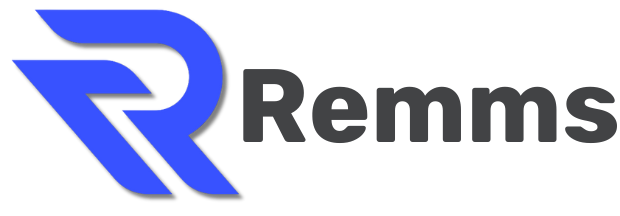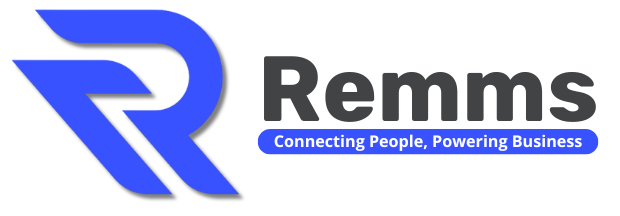
In today’s competitive job market, recruitment agencies play an indispensable role in helping organizations source and select top talent. With businesses constantly evolving and the demand for skilled professionals on the rise, these agencies utilize an array of strategies and tools to match candidates with the right job opportunities effectively. As a vital part of staffing solutions in USA, recruitment agencies streamline the hiring process, illuminating their value to both employers and job seekers through efficient and targeted placement strategies.
Understanding Client Needs: A Tailored Approach
The journey of successful recruitment begins with a deep understanding of an employer’s unique needs. Recruitment agencies initiate their process by engaging in thorough consultations with their clients.
This collaboration is essential for grasping the specific requirements for each job opening. Agencies consider various factors, such as necessary skill sets, levels of experience, workplace culture, and other defining characteristics that contribute to a holistic job profile.
Creating accurate job descriptions is a pivotal step in this process. Agencies work diligently to craft detailed and compelling listings that not only outline the responsibilities and qualifications required for the role but also highlight the values and culture of the company.
By doing so, they attract candidates who are not only qualified but are also likely to resonate with the organization’s ethos.
Embracing Technology and Tools for Efficiency
The recruitment landscape has evolved significantly, particularly with the integration of technology. Recruitment agencies leverage various tools to streamline the hiring process and enhance efficiency.
One of the primary tools used is an Applicant Tracking System (ATS), which automates many elements of the recruitment workflow, from managing applications to tracking candidate progress. An ATS allows agencies to filter applications, saving valuable time and resources while ensuring that only the most suitable candidates proceed through the hiring funnel.
Moreover, social media and professional networking platforms have become indispensable in sourcing talent. LinkedIn, Twitter, and industry-specific forums provide ample opportunities for recruiters to identify and engage with potential candidates.
Many recruitment professionals actively reach out to passive candidates—those who may not be actively seeking new employment but possess the qualifications and experience that clients desire. This proactive approach broadens the candidate pool and often leads to successful placements.
Data analytics is another aspect where technology plays a crucial role. Advanced analytics tools enable recruitment agencies to identify trends in candidate behavior, market salary benchmarks, and in-demand skills.
By interpreting this data, agencies can refine their search strategies to target specific profiles, ensuring that their clients receive the best talent available.
Building Talent Networks: The Power of Connections
A recruitment agency’s ability to connect clients with desirable candidates is often rooted in their expansive talent networks. Over time, agencies accumulate extensive databases of candidates obtained from previous applications, networking events, and referral programs.
Maintaining relationships with current and former candidates is fundamental to these networks, encouraging referrals that often yield high-quality talent.
Networking remains a powerful strategy in recruitment. Agencies frequently attend industry events to meet potential candidates and establish connections with influential professionals within specific fields. These relationships not only help in sourcing active candidates but also facilitate access to passive candidates who may be ideal fits for open roles—making them a crucial part of effective staffing solutions in USA.
🔗 Read article: How Recruitment Agency Work
Active Search and Headhunting
While many candidates are actively searching for roles, a significant portion of top talent is not. Recruitment agencies excel in identifying and reaching out to these passive candidates through tailored headhunting strategies.
By utilizing their networks and conducting thorough research, recruiters can connect with individuals who possess the desired qualifications but may not have considered a job change.
The art of cold outreach, where recruiters directly contact potential candidates through messages or emails, plays a crucial role in this strategy.
Effective cold outreach involves creating personalized communication that resonates with candidates, showcasing the benefits of exploring new opportunities while highlighting the unique attributes of the client organization.
Enhancing the Candidate Experience: Screening and Assessment
Once potential candidates have been identified, recruitment agencies strive to ensure a positive and efficient candidate experience. As part of delivering high-quality staffing solutions in USA, they conduct preliminary interviews to evaluate candidates’ skills, cultural fit, and motivation. This initial assessment is pivotal, as it helps filter candidates before they are presented to the client, ensuring that only the best fits move forward in the hiring process.
To further enhance candidate assessment, many agencies employ skill testing tools that can assess technical abilities or soft skills relevant to the position. Such evaluations not only foster a better fit between the candidate and the job but also reassure employers that their chosen candidate possesses the necessary competencies to thrive in the role.
The Importance of Employer Branding
Recruitment agencies often act as ambassadors for the companies they represent. Promoting the client’s brand effectively is essential in attracting top talent.
They highlight several aspects, including the organization’s unique selling points, values, and culture. A strong employer brand can be a significant differentiator when competing for top talent in a saturated market.
Crafting alluring job postings is another area where agencies excel. They write compelling advertisements that resonate with potential candidates, focusing on not just the job responsibilities but also the benefits of working for the client organization.
This proactive employer branding strategy can substantially impact the quality and quantity of applicants received.
Adapting to Market Trends: Staying Ahead
The labor market is in a constant state of flux, influenced by various factors such as economic changes, technological advancements, and evolving workforce demographics. For recruitment agencies, staying updated with industry trends is vital.
They continuously monitor employment trends, skill shortages, and market fluctuations, allowing them to adapt their strategies accordingly.
Flexibility is key in a recruitment agency’s approach, enabling them to modify their sourcing strategies in response to shifting labor market conditions or specific client needs.
This adaptability ensures that agencies remain relevant, effective, and capable of connecting organizations with the right talent as market demands evolve.
Continuous Engagement: Building Lasting Relationships
The relationship between recruitment agencies and candidates doesn’t end with placement. Continuous engagement is paramount for fostering loyalty and community among candidates.
As part of comprehensive staffing solutions in USA, agencies maintain communication with candidates post-placement, nurturing these relationships to pave the way for future opportunities or referrals.
Gathering feedback from both clients and candidates about the recruitment experience is essential for continuous improvement.
Constructive feedback helps agencies refine their processes, enhancing the quality of talent sourcing and ensuring a better fit for future placements.
Conclusion
Recruitment agencies play a multifaceted role in bridging the gap between job seekers and employers. By combining technology, deep industry knowledge, proactive networking, and strategic outreach, they efficiently manage the recruitment process.
This symbiotic relationship benefits organizations in their quest for top talent while serving the career interests of job seekers. As the labor market grows increasingly competitive, the importance of skilled recruitment agencies cannot be overstated; they remain an invaluable resource for both candidates and employers navigating the evolving employment landscape.

